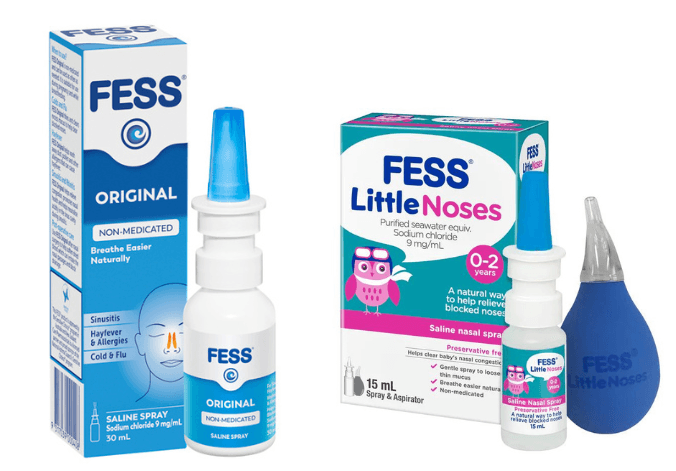Blocked Nose
Nasal congestion is a very common condition. In fact, most people get a blocked or stuffy nose from time to time. Although annoying, it is rarely serious.
Nasal congestion can develop when the blood vessels inside the nose become inflamed and the nasal tissues swell. Excess mucus drainage may also occur with a stuffy nose.
In many cases, nasal congestion is only a temporary problem. The following conditions can lead to a stuffy nose:
Viral infections like the common cold or flu
Allergic rhinitis or hayfever due pollen, grasses, dust or pets
When someone has a stuffy nose, it may be accompanied by other symptoms. It’s common to also have sneezing and a dripping nose. Nasal congestion can also lead to a headache in some people.
Although it can be uncomfortable, a stuffy nose is nothing to worry about in most cases. Still, there may be times when it’s best to see a doctor, such as if symptoms don’t seem to be going away.
The amount of time it takes for symptoms to improve may depend on the cause but most people recover from a cold in about 10 days. If symptoms continue for more than 10 days, it may be time to see a doctor.
Addition symptoms to watch for that may signal something more serious than a stuffy nose include:
green mucus draining from the nose
facial pain
pain in the ear
headache
coughing
chest tightness
People who develop any of the symptoms above may want to see their doctor to rule out a bacterial infection or any other complication.
To keep your nasal passages moist, you can:
Use a humidifier or vaporiser.
Take long showers or breathe in steam from a pot of warm (but not too hot) water.
Drink lots of fluids. This will thin out your mucus, which could help prevent blocked sinuses.
Use a nasal saline spray. It’s salt water, and it will help keep your nasal passages from drying out.
Try a saline nose rinse with a squeeze bottle or Neti pot.
Place a warm, wet towel on your face. It may relieve discomfort and open your nasal passages.
Prop yourself up. At night, lie on a couple of pillows. Keeping your head elevated may make breathing more comfortable.
Avoid chlorinated pools. They can irritate your nasal passages.
Fess Saline Nasal Spray
Fess Original Nasal Spray - A natural way to help relieve nasal congestion
Helps relieve nasal congestion caused by sinusitis, hayfever & colds
Washes away allergens, dust & pollen
Helps clean & clear blocked noses
Non-medicated
Helps maintain nasal health
This non-medicated saline solution keeps your nasal passages moist. It also thins and clears excess mucus to help clear blocked noses due to colds and allergies.
Your nose acts as the first line of defence for your body by filtering particles from the air. Regular use of non-medicated FESS will also help keep your nose clear of excess mucus, allowing it to function at its best.
Fess Little Noses Nasal Spray - A natural way to help relieve blocked noses caused by excess mucus.
FESS Little Noses is a gentle saline solution that loosens and thins mucus to help clear a blocked nose, so your baby can breathe easier, naturally. It’s non medicated so can be used as often as needed, from the day your baby’s born.
FESS Little Noses works by loosening and thinning nasal mucus and moisturising dry nasal passages. This helps to clear stuffy noses, allowing your baby to breathe easier. The spray is preservative and additive free.
It also comes with a FESS nasal aspirator to gently remove excess mucus. This aspirator is a rubber bulb syringe with a soft tip designed to gently suction the mucus (loosened by FESS Little Noses Saline Solution) from your baby’s nose. Since babies cannot clear their noses as we do, the suctioning effect of the aspirator has the same effect as blowing, to clear mucus congestion. Using the nasal aspirator to remove mucus will help avoid the harshness of tissues.
https://www.healthnavigator.org.nz/medicines/d/decongestants-nasal/
